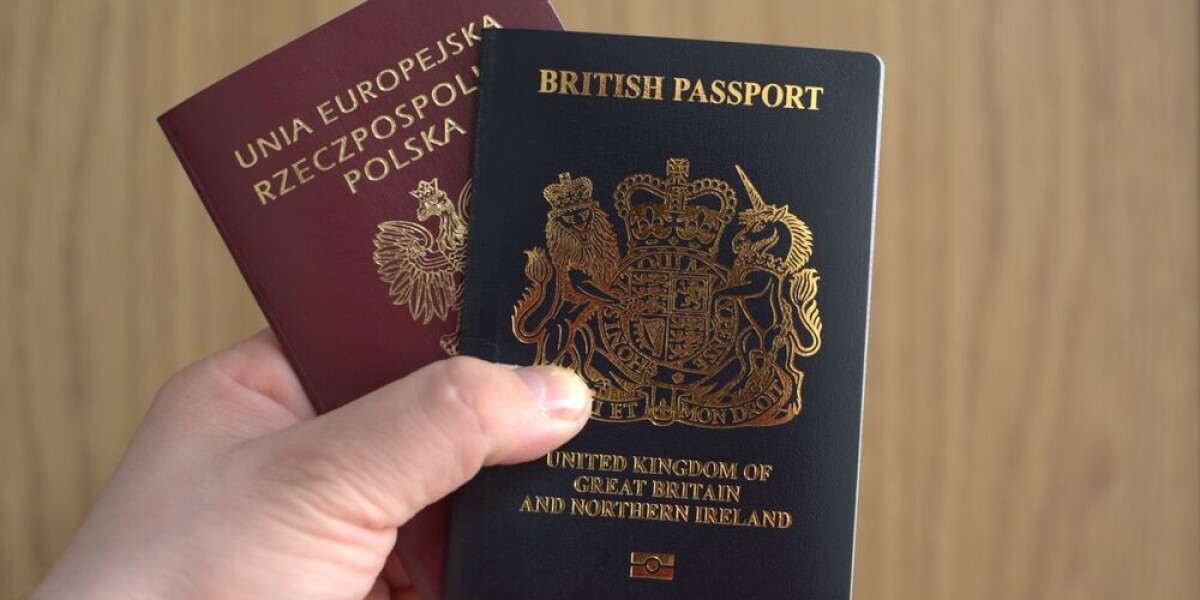
- Select a language for the TTS:
- UK English Female
- UK English Male
- US English Female
- US English Male
- Australian Female
- Australian Male
- Language selected: (auto detect) - EN
Play all audios:
DEPENDING ON HOW LONG YOU STAY IN FRANCE YOU MAY NEED A RESIDENCY CARD READER QUESTION: I AM BRITISH AND MY WIFE HAS AN EU (IRISH) PASSPORT. WE HAVE A SECOND HOME IN FRANCE AND OFTEN TRAVEL
BETWEEN THE UK AND FRANCE. I TRAVEL WITH A COPY OF DIRECTIVE 2004/38/EC, WHICH I BELIEVE GIVES ME THE SAME FREEDOM OF MOVEMENT RIGHTS AS MY WIFE, AND OUR WEDDING CERTIFICATE. IF I TRAVELLED
ALONE, WOULD I ENCOUNTER ANY PROBLEMS? You are correct when it comes to the Directive 2004/38/EC which grants spouses the same freedom of movement as their EU citizen partner. It states:
“The right of all Union citizens to move and reside freely within the territory of the member states should, if it is to be exercised under objective conditions of freedom and dignity, be
also granted to their family members, irrespective of nationality.” There are still some conditions on travelling, however, and importantly, the principle in the directive relates to travel
to ‘accompany or join (ie. in an EU country where they are living)’ your EU-nationality family member. So, for example, it would not apply to you individually if you were just travelling
around in the EU while your wife stayed at home in the UK. With this proviso, as the spouse of an EU citizen with free movement rights, logically you should not be subject to the limit of 90
days in any 180day period in the Schengen area that apply to other people from ‘visa waiver’ non-EU countries as long as you are ‘accompanying or joining’ her in the EU. In this case if you
do not spend more than three months continuously in any one EU country, you should be able to travel in the EU without formalities (we have asked the European Commission to confirm that is
no issue regarding the question of '90 in 180 days' and will update this section if received). This includes staying in France up to three months, in which case you do not need to
apply for any extra documents. Also as a British person (with a visa waiver) you do not need an entry visa for these short stays. LONG STAYS IN FRANCE However, if you plan on staying longer
than 90 days in France, then further rules come into play. In this case the Interior Ministry has previously confirmed to _The Connexion_ that it is not essential to apply for a visa before
coming, but rather you should apply for a residency card called _carte de séjour_ ‘_membre de la famille d’un citoyen de l’Union_’ within the first three months of the stay in France. You
can APPLY FOR THIS ONLINE. In this case as your rights come from your marriage link with an EU citizen it is firstly important that your spouse should be living legally in France beyond
three months, which is not technically an automatic matter (though France has a generally flexible attitude towards residency of EU citizens). The EU rules on EU citizens staying more than
three months in another EU country include working or otherwise having sufficient means to support the basic needs of yourself and any dependent family. In the words of EU law: “Persons
exercising their right of residence should not become an unreasonable burden on the social assistance system of the host member state during an initial period of residence.” The residence
card will be valid for five years or however long you plan to stay in France but you must apply for it within three months of arrival. You will not obtain it immediately but will obtain
proof of having applied for it. The supporting documents required include a valid passport, your marriage certificate, and evidence of financial means. There is FURTHER INFORMATION here. The
card is free. When you receive it, it will clearly state that it is the residence card of an EU national family member. If you hold a residency card or card for five years or more, you may
then apply for a_ carte de séjour Directive 2004/38/CE_ - _Séjour permanent - Toutes activités professionnelles_. This will give you most of the same rights as an EU national. The rules on
moving to an EU which is the country of the nationality of your spouse are different but are not applicable in your case. RELATED ARTICLES HOW LONG TO GET A VISA FOR FRANCE, WHAT IS COST FOR
A COURIER SERVICE? HOW BECOMING A FRENCH RESIDENT CAN BRING TAX AND TRAVEL BENEFITS



:max_bytes(150000):strip_icc():focal(224x0:226x2)/gettyimages-634330062-bc2a88dcee8c4d6985308d95ed6e9a97.jpg)





